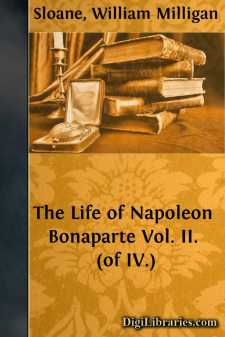Categories
- Antiques & Collectibles 13
- Architecture 36
- Art 48
- Bibles 22
- Biography & Autobiography 815
- Body, Mind & Spirit 144
- Business & Economics 28
- Children's Books 18
- Children's Fiction 14
- Computers 4
- Cooking 94
- Crafts & Hobbies 4
- Drama 346
- Education 58
- Family & Relationships 59
- Fiction 11835
- Games 19
- Gardening 17
- Health & Fitness 34
- History 1378
- House & Home 1
- Humor 147
- Juvenile Fiction 1873
- Juvenile Nonfiction 202
- Language Arts & Disciplines 89
- Law 16
- Literary Collections 686
- Literary Criticism 179
- Mathematics 13
- Medical 41
- Music 40
- Nature 180
- Non-Classifiable 1768
- Performing Arts 7
- Periodicals 1453
- Philosophy 65
- Photography 2
- Poetry 896
- Political Science 203
- Psychology 44
- Reference 154
- Religion 515
- Science 126
- Self-Help 85
- Social Science 83
- Sports & Recreation 34
- Study Aids 3
- Technology & Engineering 59
- Transportation 23
- Travel 463
- True Crime 29
Our website is made possible by displaying online advertisements to our visitors.
Please consider supporting us by disabling your ad blocker.
The Life of Napoleon Bonaparte Vol. III. (of IV.)
Description:
Excerpt
CHAPTER I.
War With Russia: Pultusk.
Poland and the Poles — The Seat of War — Change in the Character of Napoleon's Army — The Battle of Pultusk — Discontent in the Grand Army — Homesickness of the French — Napoleon's Generals — His Measures of Reorganization — Weakness of the Russians — The Ability of Bennigsen — Failure of the Russian Manœuvers — Napoleon in Warsaw.
1806-07.
The key to Napoleon's dealings with Poland is to be found in his strategy; his political policy never passed beyond the first tentative stages, for he never conquered either Russia or Poland. The struggle upon which he was next to enter was a contest, not for Russian abasement but for Russian friendship in the interest of his far-reaching continental system. Poland was simply one of his weapons against the Czar. Austria was steadily arming; Francis received the quieting assurance that his share in the partition was to be undisturbed. In the general and proper sorrow which has been felt for the extinction of Polish nationality by three vulture neighbors, the terrible indictment of general worthlessness which was justly brought against her organization and administration is at most times and by most people utterly forgotten. A people has exactly the nationality, government, and administration which expresses its quality and secures its deserts. The Poles were either dull and sluggish boors or haughty and elegant, pleasure-loving nobles. Napoleon and his officers delighted in the life of Warsaw, but he never appears to have respected the Poles either as a whole or in their wrangling cliques; no doubt he occasionally faced the possibility of a redeemed Poland, but in general the suggestion of such a consummation served his purpose and he went no further. That he had no sentiment about Polish nationality is self-evident.
After Jena the Czar displayed great activity. In spite of being compelled to detach eighty thousand men for service against Turkey, he had got together a second numerous army; Lestocq, with a corps of fifteen thousand Prussians, had joined him, and he was clearly determined to renew the war. For a time the French had no certain information as to whether he would cross the Prussian frontier or not, and Napoleon at first expected the city of Posen to be the center of operations. Before long, however, it became evident that the Russians were drawing together on Pultusk. Displaying an astounding assurance as to the stability of his power in France, and without regarding the possible effect upon conditions at home of a second war, at an enormous distance, Napoleon determined to meet them. With the same celerity and caution as of old, the various French divisions were led first across the Vistula, and then over the plains, until in the end of December they were concentrated before the enemy. During the three weeks consumed in these operations much besides was done to strengthen the position of the French and to assure their communications. The Russians were dislodged from Warsaw, and Thorn was besieged; the Vistula, Bug, Wkra, Narew, and other rivers were bridged; and a commissary department was organized....














